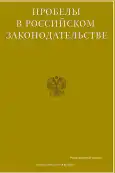Main Directions of Increasing the Efficiency of the State Policy to Counter Cyberterrorism in the Russian Federation
- Authors: Aramisov A.A.1
-
Affiliations:
- Krasnodar University of the Ministry of Internal Affairs of Russia
- Issue: Vol 16, No 4 (2023)
- Pages: 254-257
- Section: General theoretical, criminal-legal and other problems of Countering extremism and terrorism. Problems of preventing extremism and terrorism
- URL: https://journals.eco-vector.com/2072-3164/article/view/568476
- EDN: https://elibrary.ru/SFXLPN
- ID: 568476
Cite item
Abstract
Countering cyberterrorism in modern conditions is one of the urgent problems of the state, where there are high rates of digitalization. Information becomes every year an increasingly valuable resource, a tool for destabilizing the political, socio-economic situation in a single state, and throughout the world. Cyberterrorism is one of the fastest growing types of crimes, the fight against which is complicated by the problem of both technical and legal and professional nature. In the current conditions, the guarantee of the security of the state is the improvement of the state policy in the field of countering cyberterrorism. Each state has its own tools to combat cyberterrorism, taking into account the peculiarities of the political system, historical and economic development. This article discusses ways to increase the effectiveness of countering cyberterrorism in the Russian Federation, which have their own characteristics. Countering terrorism must be built on the basis of an integrated approach using the practice of countering other states. One of the areas of combating information terrorism is the organization and implementation of a set of preventive measures with the participation of government agencies, law enforcement agencies and educational organizations. In this direction, the state is intensifying its work, since the prevention of the spread of information terrorism makes it possible to neutralize the actions of cyberterrorists. Given the speed of ongoing changes in the field of information technology, government agencies are required to conduct high-quality and detailed monitoring of the situation in order to develop and apply immediate actions. The activity of the state in this area is complicated by the absence of geographical, information and telecommunication restrictions. The most important element of combating information terrorism is the use of scientific knowledge in the information technology industry and the development of new technological solution.
Full Text
About the authors
Amir A. Aramisov
Krasnodar University of the Ministry of Internal Affairs of Russia
Author for correspondence.
Email: zhukov_azamat@mail.ru
Cand.Sci.(Pedagogics), senior lecturer of the department of activities of internal affairs bodies in special conditions, Ph.D. North Caucasian Institute for Advanced Studies (branch)
Russian Federation, Nalchik, KBRReferences
- Decree of the President of the Russian Federation of March 17, 2008 No. 351 “On measures to ensure the information security of the Russian Federation when using information and telecommunication networks of international information exchange.
- Decree of the President of the Russian Federation of July 2, 2021 N 400 “On the National Security Strategy of the Russian Federation”.
- Decree of the President of the Russian Federation of January 15, 2013 No. 31s "On the creation of a state system for detecting, preventing and eliminating the consequences of computer attacks on information resources of the Russian Federation."
- Golubev V. A. Cyberterrorism — concept, terminology, counteraction. URL: http://wvv.crimc-research.ni/articles/Golubev0804/ (Accessed: 02.05.2023).
- Morozov I.L. Limits of information freedom in Russian cyberspace: how to mitigate the clash of interests of the state, civil society, and independent science? [electronic resource]. URL: http://morozov.vlz.ru/library/infsvob.htm (Accessed 05.05.2023).
- Uvarova A. Danger and security - a virtual arms race [Electronic resource] // Habrahabr. - 2016. - October 26. - "TM", 2017. - Access mode: https://habrahabr.ru/post/313460/, free. (accessed 05.05.2023).
Supplementary files








